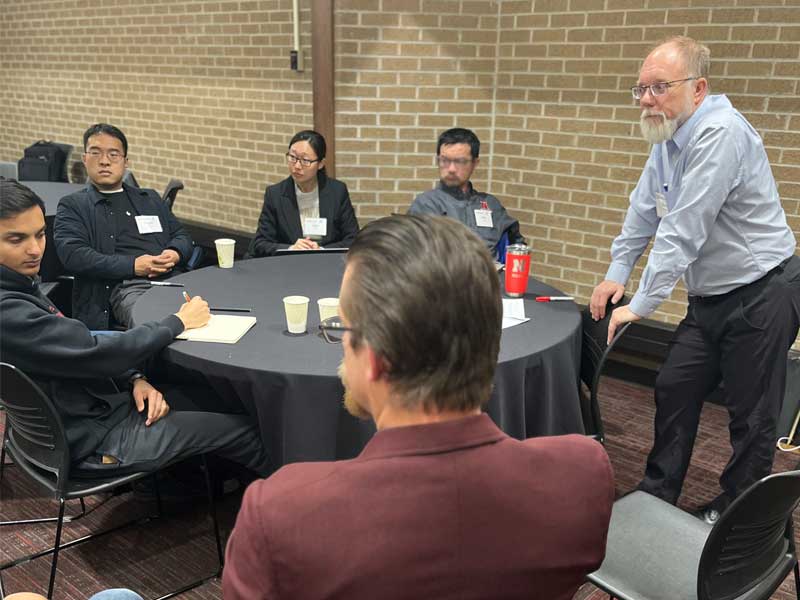
We’ll be on Mars and the moon, we’ll have settlements, and people got to eat.Santosh Pitla Associate Professor of Biological Systems Engineering and Advanced Machinery Systems
Growing soybeans on the moon or harvesting corn on Mars might sound farfetched now but UNL engineers are focused on doing just that with SPACE2, a consortium of Space, Policy, Agriculture, Climate and Extreme Environment (SPACE2) established to explore opportunities to grow food for space travel and, eventually, in space.
Formed by biological systems engineering researchers Yufeng Ge and Santosh Pitla, SPACE2 is also hoping that the first center for space agriculture in the United States will be launched at UNL thanks to a two-year Grand Challenges grant from Nebraska’s Office of Research and Economic Development. SPACE2 was at the forefront of the first-ever Nebraska Space Ag Symposium on East Campus earlier this month, featuring scientists and experts from across the country, including Honeybee Robotics’ Kathy Bywaters, Ph.D., Mark Settles, Ph.D., from the NASA Ames Research Center, and Steve Zeng, Ph.D., director of the USDA-NIFA Division of Food Safety.
The Nebraska Space Ag Symposium, a two-day event, highlighted various activities from research and development of agriculture in space to designing equipment, like irrigation systems or robots, that will be needed to work in low to zero gravity.
“Before humans go to Mars, we’ll want some essential resources there – and for that, we will send robots,” explained Pitla, associate professor of biological systems engineering and advanced machinery systems. “We’ll be on Mars and the moon, we’ll have settlements, and people got to eat.”
Additional topics addressed at the Nebraska Space Ag Symposium included “Ag4Space and the law,” “Earthworm transformation of lunar regolith into agriculturally functioning soils,” and “NASA’s Work in Agriculture from 1972 to Today and Beyond.” Breakout sessions concluded the final day’s events as well as closing remarks on hosting future space agriculture events and involving attendees with a potential UNL space ag center.